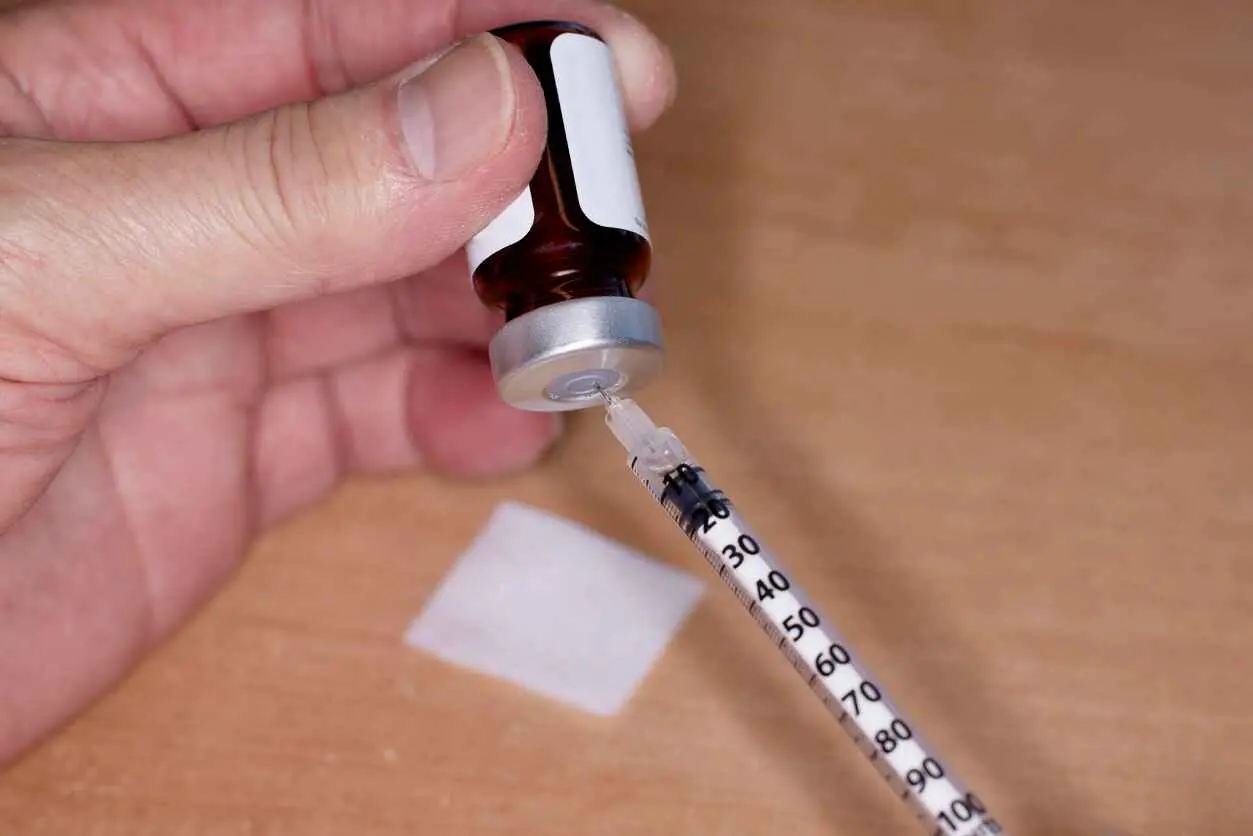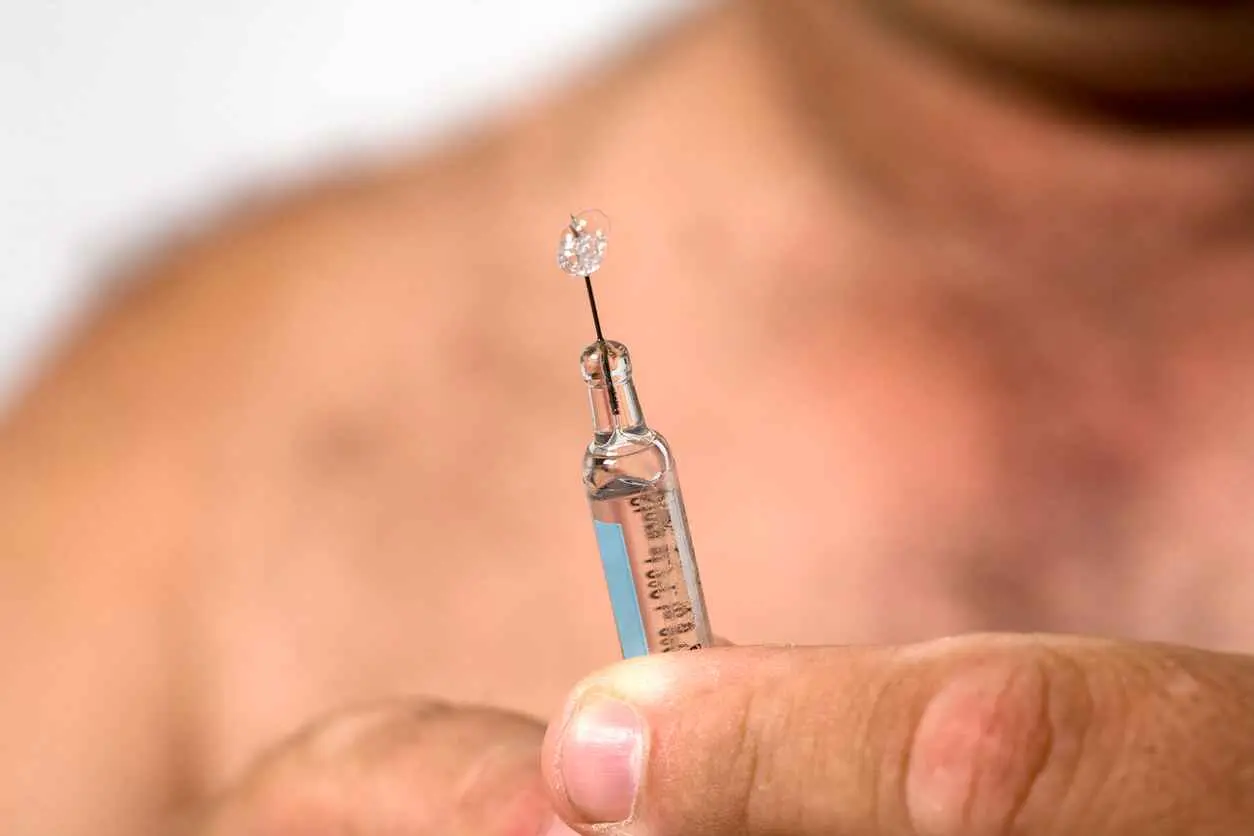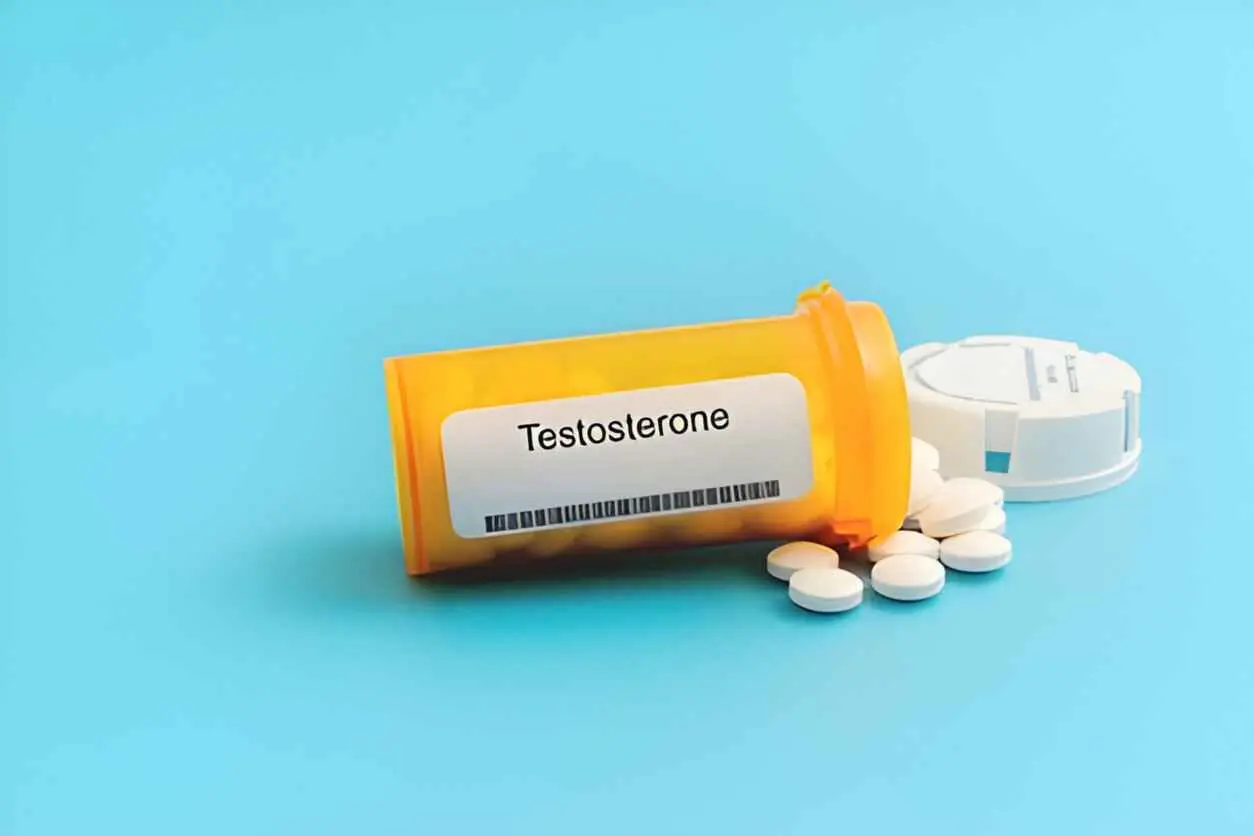
Can Testosterone Help With Fat Loss?
Can Testosterone Help With Fat Loss? Benefits, Studies & Natural Solutions
Can Testosterone Help With Fat Loss?
Testosterone influences fat metabolism, lean muscle, and energy levels. Men with low testosterone may benefit from medically supervised TRT and lifestyle changes to reduce body fat and boost metabolism.
Testosterone is often linked with strength, vitality, and muscle growth, but its connection to fat loss is just as significant. As one of the key hormones in the human body, testosterone influences metabolism, energy use, and how fat is stored or burned. Low levels of this hormone can make it harder to lose weight, even when following a balanced diet and regular exercise routine. This is one reason why testosterone replacement therapy (TRT) has become a subject of growing interest for men seeking better body composition.
Research shows that testosterone plays an important role in maintaining lean muscle mass and regulating fat distribution. When testosterone levels drop, the body tends to store more fat, especially around the abdomen, and loses muscle, which can slow down the metabolism. A 2018 clinical review published in Medicine (Baltimore) highlighted that men with low testosterone who underwent TRT experienced a notable decrease in fat mass while gaining lean muscle.
However, testosterone is not a magic solution for fat loss. While men with diagnosed testosterone deficiency can see significant benefits from treatment, those with normal hormone levels are unlikely to experience fat loss just by raising their testosterone artificially. Furthermore, TRT comes with potential risks, including cardiovascular complications, hormonal imbalances, and fertility issues. Therefore, it’s crucial to understand both the science and the limitations before considering testosterone as part of a fat-loss strategy.
In this article, we will take an in-depth look at the relationship between testosterone and fat loss. We will explore the science behind how this hormone influences body composition, review the evidence supporting TRT, and discuss safe, natural ways optimise testosterone levels. By the end, you’ll have a clear understanding of what testosterone can and cannot do when it comes to losing fat.
What Is Testosterone & How It Impacts Fat Loss
Testosterone is a hormone that is found in both men and women, but men usually have higher levels of it. It is mainly made in the testicles for men and in small amounts in the ovaries for women. Testosterone helps with things like muscle growth, energy, mood, and body hair. But it also has a significant role in how your body stores fat and builds muscle.
One of the most essential things testosterone does is help build and keep muscle. When you have more muscle, your body burns more calories, even when you’re resting. This means having healthy testosterone levels can make it easier to stay in shape. On the other hand, if your testosterone is too low, you might start losing muscle and gaining fat—especially around your belly. According to researchers in Nature Reviews Endocrinology, men with low testosterone often have more body fat and less muscle, which can lead to other health problems like type 2 diabetes and heart disease.
Testosterone also helps control where fat is stored in the body. It works by preventing excessive fat buildup and helps break it down. When testosterone levels are good, your body is better at stopping fat from collecting around your organs, which is called visceral fat. Too much of this type of fat can be harmful. But if your testosterone is low, your body may start to store more fat, which then makes it even harder to lose weight. Fat tissue can also turn testosterone into oestrogen, which lowers your testosterone even more, creating a tricky cycle.
This hormone also affects your energy levels and motivation. Men with low testosterone often feel tired and less active, which can make it harder to exercise or stay fit. But when testosterone levels go back to normal, either naturally or with help from a doctor, many people feel more energetic and are more likely to be more active. A study in the Journal of Clinical Endocrinology & Metabolism showed that testosterone helps with not just muscle and fat, but also your ability to be active and feel well overall.
To put it simply, testosterone does more than just help with strength or mood. It’s also essential for keeping a healthy balance between muscle and fat. If your testosterone levels are too low, your body may find it harder to burn fat and maintain muscle mass. This can lead to weight gain and other health issues. That’s why maintaining testosterone at a healthy level is vital for your overall health and fitness.
Can Testosterone Help With Fat Loss & Body Composition?
Yes, testosterone plays a crucial role in regulating fat metabolism and maintaining muscle mass. Low levels can lead to weight gain, while restoring testosterone, whether naturally or through testosterone replacement therapy (TRT), can improve fat loss and metabolic function.
Research has indicated that individuals with consistently low testosterone levels may experience inhibited muscle development and an increased likelihood of gaining weight. Furthermore, maintaining adequate levels of natural testosterone has been linked to sustained weight loss, a decrease in waist circumference, and an improved basal metabolic rate (BMR).
How Does Low Testosterone Interfere with Fat Loss?
When someone has low testosterone, it can make losing fat a lot harder. This is because testosterone helps your body stay strong and burn energy. Without enough of it, your body can slow down, store more fat, and lose muscle. Even if you are eating well and exercising, low testosterone might stop you from seeing the results you expect.
One of the first things that happens with low testosterone is that your body starts to build up, especially around the belly. At the same time, you might start losing muscle. Muscle is important because it helps burn calories, even when you’re resting. With less muscle, your body burns fewer calories, which can lead to weight gain.
Another problem is energy. People with low testosterone often feel tired, weak, or unmotivated. This can make it harder to work out or even stay active during the day. Some men also feel more down or moody, which can affect their ability to stick to a healthy routine. If you're not moving much and feeling low, it’s easy to gain weight without even noticing.
Sleep can also be affected. Poor sleep makes your body produce more of the stress hormone called cortisol, which can cause more fat to build up, especially in the stomach area. Low testosterone and poor sleep often go hand in hand, creating another cycle that makes fat loss harder.
Researchers from Medicine (Baltimore) found that men with low testosterone have more trouble losing weight compared to those with healthy levels. Even when they follow the same diet or fitness plan, their results are often slower and less noticeable.
In short, when testosterone is low, your body doesn't work as well when it comes to burning fat, keeping muscle, or staying active. That’s why many men with low testosterone find it hard to lose weight, even when they’re trying their best. Fixing low testosterone can sometimes make a big difference, especially for people who have been struggling without knowing why.
Comparison of Testosterone Levels and Fat Loss Outcomes
|
Testosterone Status |
Muscle Mass |
Body Fat |
Metabolism Rate |
|---|---|---|---|
|
Low Testosterone |
↓ Lower muscle |
↑ Higher body fat |
↓ Slower metabolism |
|
Normal Testosterone |
Maintains or gains |
Lower fat levels |
Optimal |
|
On Medically Supervised TRT |
Improves muscle mass |
Decreases fat |
Restored metabolic rate |
What Are the Signs of Low Testosterone and Its Link to Weight Gain?
While testosterone is primarily produced in the testes of males, it is also found in small amounts in females, albeit from a different source. In females, the adrenal gland produces this hormone in limited quantities.
Testosterone is a vital hormone that plays crucial roles in both male and female bodies. It regulates the metabolic rate and plays a direct role in the synthesis of muscle tissue and the maintenance of bone health.
Insufficient testosterone levels can challenge muscle gain and maintenance, and metabolism can also be slowed. When these factors are combined, they can increase body fat, particularly in the abdominal and hip areas, potentially leading to obesity.
What Are the Signs of Low Testosterone and Its Link to Weight Gain?
The typical range for testosterone in the body is approximately 12 to 30 nmol/l or 350 to 1000 nanograms per deciliter of blood. Symptoms of low testosterone are commonly seen when levels dip below 350 nanograms per deciliter or 12nmol/l, although symptoms can also manifest at higher levels or when free testosterone levels are low.
As testosterone plays a crucial role in various bodily functions, a decrease in its production may manifest through a range of symptoms, such as
Men have a decreased sex drive.
- A general feeling of lethargy and laziness
- Moodiness
- Being unable to concentrate or focus
- An increase in abdominal fat
- Muscle mass decreases
- Weakness
While it is common for testosterone levels to decrease with age, it is essential to note that not all symptoms mentioned above are necessarily caused by low testosterone. If you experience any of these symptoms, it is advisable to consult with a healthcare professional and have your hormone levels evaluated.
How Testosterone Affects Muscle and Metabolism
As testosterone levels decline, muscle mass can decrease, as the body's metabolism may become sluggish. Conversely, adequate levels of this hormone can promote the development of lean muscle mass and boost metabolic function.
Research has shown that inadequate testosterone levels can lead to increased abdominal and hip fat, contributing to central obesity.
How Low Testosterone Contributes to Obesity
Testosterone levels in obese and overweight men have been extensively studied, revealing that these individuals may have up to 30% less testosterone compared to men of average weight. Additionally, men with hypogonadism, a condition characterised by reduced testicular functionality, often experience rapid weight gain. However, research has shown that testosterone replacement therapy can effectively reverse this weight gain in such cases.
Low testosterone levels in obese men may contribute to weight gain through the increase of an enzyme called aromatase, according to many scientists who are still researching the exact mechanism behind this phenomenon.
Studies have demonstrated that obese men exhibit higher levels of oestrogen in their bloodstream, which may be due to an increase in aromatase activity. This enzyme converts testosterone into oestrogen, thus contributing to hormonal imbalances in men with excess body weight.
High aromatase levels initiate a negative feedback loop, which increases oestrogen production. This excess oestrogen then inhibits the secretion of GnRH, resulting in a decrease in testosterone production. As a result, the pituitary gland ceases to produce Luteinizing hormone, further exacerbating the situation by limiting testosterone production in the testes.
Obese men often experience a decrease in testosterone production, leading to imbalances in hormone levels. This can result in elevated estrogen levels and further exacerbate the scarcity of testosterone in their bodies.
|
Hormone Level |
Muscle Mass |
Body Fat |
Metabolism |
Weight Loss Potential |
|
Low Testosterone |
Decreases |
Increases |
Slower |
Low |
|
Normal Testosterone |
Maintained/Gains |
Lower body fat |
Optimised |
Higher |
|
On TRT (medically supervised) |
Improves |
Decreases |
Restored |
Enhanced |
The Long Game
Just as women experience hormonal fluctuations throughout their menstrual cycle, men also experience a monthly dip in testosterone levels. This natural variation in testosterone production is a typical male hormonal cycle.
When testosterone levels remain low for an extended period, it can disrupt your body's metabolism, shifting it away from building muscle and towards storing fat. A prolonged deficiency results in an increase in body fat and muscle mass.
When oestrogen levels are elevated, in conjunction with low testosterone, it can contribute to the deposition of fat that is typically associated with the female body. In individuals with low testosterone levels, fat can accumulate more easily.
Can Testosterone Intake Aid In Fat Loss?
Scientific research has consistently shown that men suffering from low testosterone hormone levels can benefit from testosterone replacement therapy, as it has been proven to both help reduce body fat and increase muscle mass.
In a 2016 randomised controlled trial, 100 obese men on a reduced-calorie diet were divided into two groups. The group receiving testosterone injections experienced an average weight loss of 6.4 pounds, whereas the control group did not show a similar level of weight loss.
Although the intervention group and the control group experienced decreased muscle mass due to reduced caloric intake, the intervention group recovered their lost muscle mass faster than the control group during the maintenance periods.
Who Might Benefit from Testosterone for Fat Loss?
Testosterone replacement therapy, also known as TRT, is not something that everyone should use. It is a treatment for people who have been tested and found to have low levels of testosterone. This condition is called testosterone deficiency. People with this problem often feel tired, gain weight easily, lose interest in things they enjoy, and sometimes feel low in mood. For these people, TRT may help them lose fat, feel more energetic, and improve their overall health.
Some men who are overweight or have health problems like high blood sugar or high blood pressure also have low testosterone. These problems are sometimes grouped and called metabolic syndrome. Studies have shown that when men with these issues are given TRT, they may lose fat, especially around their stomach, and gain more muscle. In one study, men who were treated for several years continued to lose belly fat and were able to keep the weight off long-term. This means TRT can be helpful for people whose low testosterone is making it hard to lose fat.
However, TRT is not for people who already have normal testosterone levels. Some people may think that taking testosterone will help them lose weight faster or get stronger in the gym. But using TRT without a need for it is not safe. It is a serious medical treatment and should only be used if a doctor says it is necessary. Using it without a real health reason can cause side effects and lead to other problems.
Only a doctor can tell if someone needs TRT. This usually means getting a blood test and talking about symptoms. If the results show that testosterone is low and it is affecting health, the doctor might suggest treatment. But if testosterone levels are already healthy, there are better ways to lose fat, like eating well, exercising, and getting enough sleep.
In short, TRT can help with fat loss for people who have low testosterone and real health problems. But it is not a quick fix, and it is not safe to use without a medical reason. For most people, the best way to lose fat is through natural, healthy habits.
Natural Ways to Boost Testosterone for Fat Loss
Instead of depending on artificial supplements, it's more effective to adopt a holistic approach to enhance your testosterone levels. Here are some natural methods to boost your testosterone levels:
A Balanced Diet
Including a variety of fresh vegetables, fruits, and natural antioxidants in your diet can effectively stimulate testosterone secretion and help maintain hormonal balance, making a balanced diet crucial for addressing metabolic derangements and promoting overall health.
Maintaining the right balance of macronutrients in your diet has been shown to have multiple benefits, including promoting fat loss and supporting the production of testosterone in the body.
Exercise
A 12-month-long randomised controlled trial found that following a consistent aerobic exercise routine can increase testosterone production. This not only improves metabolic rate and promotes weight loss, but also enhances health.
Avoid Stress
Prolonged exposure to mental stress can hinder the production of testosterone in the body by increasing levels of cortisol, a steroid hormone. This hormonal imbalance caused by stress can negatively affect various aspects of health.
When faced with stress, the body places a higher emphasis on producing cortisol than testosterone, decreasing testosterone levels.
By reducing stress levels, your body can redirect its energy towards producing testosterone rather than cortisol, supporting weight loss efforts.
A Good Night’s Sleep
Adequate sleep enhances immune function and cardiovascular health and maintains testosterone levels. Research indicates that individuals who consistently sleep for 7-8 hours experience higher testosterone synthesis, while those who sleep for shorter durations may have lower testosterone levels.
Fat Loss & Testosterone FAQs
Can testosterone help with fat loss in men?
Yes, testosterone can help with fat loss in men who have low testosterone levels. It supports muscle growth and boosts metabolism, which makes it easier to burn fat and reduce body weight. This is especially true when combined with a healthy diet and exercise.
Is testosterone replacement therapy effective for weight loss?
Testosterone replacement therapy for weight loss has shown success in men with low hormone levels. It helps reduce belly fat and increase lean muscle mass, which leads to long-term improvements in body composition. It is not a magic solution, but it can be effective when medically needed.
Can normal testosterone levels affect belly fat in men?
Men with healthy testosterone levels tend to have less belly fat than those with low testosterone. This is because testosterone helps prevent the buildup of visceral fat, which gathers around internal organs and is harder to lose through diet alone.
How long does it take for TRT to reduce body fat?
Fat loss results from testosterone therapy can usually be seen within three to six months. Most men notice steady improvements in energy, muscle tone, and fat distribution over time. However, full changes in body composition may take up to a year.
Does low testosterone make it harder to lose weight?
Yes, low testosterone can make it harder to lose weight and easier to gain fat. It slows down your metabolism and leads to loss of muscle mass, which means your body burns fewer calories even when you're not active.
Can testosterone help with fat loss without exercise?
Testosterone may help with fat loss even without exercise in men who have a deficiency. But for the best results, combining testosterone therapy with strength training and a proper diet gives faster and healthier weight loss outcomes.
Is it safe to use testosterone supplements for fat loss?
Over-the-counter testosterone supplements for fat loss are not always safe or proven to work. They may contain unregulated ingredients and carry health risks. Medically prescribed TRT is the safest and most effective option for men with hormone deficiency.
What is the best way to naturally increase testosterone to lose fat?
The best natural ways to boost testosterone for fat loss include strength training, eating healthy fats and protein, sleeping 7–9 hours a night, and reducing stress. These habits can support your body's hormone balance and improve fat burning over time.
Conclusion
Maintaining optimal testosterone levels is crucial for overall health as it regulates metabolism and promotes muscle growth. A decline in testosterone levels can lead to an increase in body fat, making weight loss efforts more challenging. Restoring testosterone levels through TRT or other natural methods can effectively support weight loss goals. Seek medical advice before initiating any new diet, exercise routine, or lifestyle modification.
Consult A Doctor
If you suspect that your testosterone levels may be low, it is advisable to discuss the possibility of undergoing TRT with a healthcare professional. Several methods can be used to administer TRT, including pills, injections, and transdermal patches. The doctor should be able to provide you with the necessary prescriptions for testosterone replacement therapy.
References
https://www.ncbi.nlm.nih.gov/pmc/articles/PMC4154787/
https://pubmed.ncbi.nlm.nih.gov/37886642/
https://pubmed.ncbi.nlm.nih.gov/38269251/
https://pubmed.ncbi.nlm.nih.gov/12198740/


